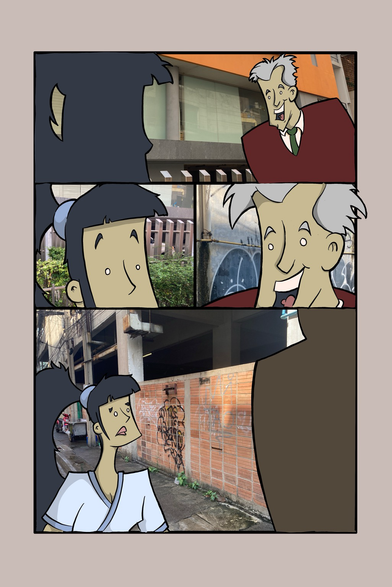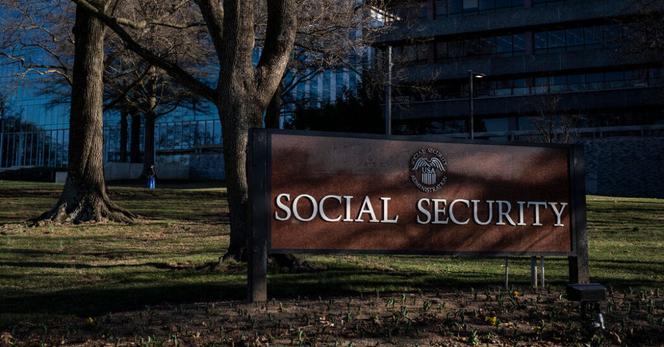#EAS #WEA for Andrews, #TX; #Ector, #TX; #Martin, #TX; #Midland, #TX: National Weather Service: DUST STORM WARNING for this area until 8:00 PM CDT. Be ready for sudden drop to zero visibility. Pull Aside, Stay Alive! When visibility drops, pull far off the road and put your vehicle in park. Turn the lights off and keep your foot off the brake. Infants, the elderly and those with respiratory issues urged to take precautions. Source: NWS Midland/Odessa TX ** DO NOT RELY ON THIS FEED FOR LIFE SAFE
#martin
On April 12, 2015, lifelong Baltimore resident #Freddie #Gray was arrested, hogtied and thrown into the back of a police van by six officers.
When Gray was pulled from the van less than an hour later, he was in a coma.
A week later, he passed away from severe injuries to his cervical spinal cord.
The incident, and the revelations thereafter, set Baltimore and the entire country ablaze.
Details of the case alleged officers had taken Gray for a “rough ride,”
a police brutality practice
where individuals are intentionally left unrestrained in police vehicles during dangerous driving maneuvers.
After a coroner ruled Gray’s death a homicide,
the six officers involved in his arrest were charged with crimes ranging from false imprisonment to manslaughter.
But the damage was done, not only to Gray, but to his community,
which had endured decades of deprivations and abuse by Baltimore police.
The resulting #Baltimore #Uprising shook the city and the nation to its core,
fueling a fresh wave of Black Lives Matter protests building on the murders of #Trayvon #Martin, #Mike #Brown, and #Eric #Garner.

Danish shoemaker Ecco to shut Slovak factory https://www.byteseu.com/938935/ #BusinessEnviroment #industry #martin #Slovakia #ZilinaRegion
After the #Trump storm is over, what do we do with folks like Ed Martin?
We need to let them retire in obscurity. We don't need to chase them, even if they pulled stupid stunts like writing to medical journals.
#Martin is the only US Attorney in the last fifty years to have no experience as a judge or federal prosecutor.
https://en.wikipedia.org/wiki/Ed_Martin_(Missouri_politician)

Fighting back
Finally, on April 14, something happened:
Harvard decided to resist in far more public fashion.
The Trump administration had demanded, as a condition of receiving $9 billion in grants over multiple years,
that Harvard reduce the power of student and faculty leaders,
vet every academic department for undefined "viewpoint diversity,"
run plagiarism checks on all faculty,
share hiring information with the administration,
shut down any program related to diversity or inclusion,
and audit particular departments for antisemitism,
including the Divinity School.
(Numerous Jewish groups want nothing to do with the campaign,
writing in an open letter that
"our safety as Jews has always been tied to the rule of law, to the safety of others, to the strength of civil society, and to the protection of rights and liberties for all.")
If you think this sounds a lot like government control,
giving the Trump administration the power to dictate hiring and teaching practices, you're not alone;
Harvard president Alan Garber rejected the demands in a letter, saying,
"The university will not surrender its independence or relinquish its constitutional rights.
Neither Harvard nor any other private university can allow itself to be taken over by the federal government."
The Trump administration immediately responded by cutting billions in Harvard funding,
threatening the university's tax-exempt status,
and claiming it might block international students from attending Harvard.
Perhaps Harvard's example will provide cover for other universities to make hard choices.
And these are hard choices.
But Columbia and Harvard have already shown that the only way you have a chance at getting the money back is to sell whatever soul your institution has left.
Given that, why not fight?
If you have to suffer, suffer for your deepest values.
"Resistance" does not mean a refusal to change, a digging in, a doubling down.
No matter what part of the political spectrum you inhabit, universities
—like most human institutions
—are "target-rich environments" for complaints.
To see this, one has only to read about recent battles over affirmative action,
the Western canon,
"legacy" admissions,
the rise and fall of "theory" in the humanities,
Gaza/Palestine protests,
the "Varsity Blues" scandal,
critiques of "meritocracy,"
mandatory faculty "diversity statements,"
the staggering rise in tuition costs over the last few decades,
student deplatforming of invited speakers,
or the fact that so many students from elite institutions cannot imagine a higher calling than management consulting.
Even top university officials acknowledge there are problems.
Famed Swiss theologian Karl #Barth lost his professorship and was forced to leave Germany in 1935
because he would not bend the knee to Adolf Hitler.
He knew something about standing up for one's academic and spiritual values
—and about the importance of not letting any approach to the world ossify into a reactionary, bureaucratic conservatism
that punishes all attempts at change or dissent.
The struggle for knowledge, truth, and justice requires forward movement even as the world changes,
as ideas and policies are tested,
and as cultures develop.
Barth's phrase for this was
"Ecclesia semper reformanda est"
—the church must always be reformed
—and it applies just as well to the universities where he spent much of his career.
As universities today face their own watershed moment of resistance,
they must still find ways to remain intellectually curious and open to the world.
They must continue to change, always imperfectly but without fear.
It is important that their resistance not be partisan.
Universities can only benefit from broad-based social support,
and the idea that they are fighting
"against conservatives"
or "for Democrats"
will be deeply unhelpful.
(Just as it would be if universities capitulated to government oversight of their faculty hires or gave in to "patriotic education.")
This is difficult when one is under attack,
as the natural reaction is to defend what currently exists.
But the assault on the universities is about deeper issues than admissions policies
or the role of elite institutions in American life.
It is about the rule of law,
freedom of speech,
scientific research,
and the very independence of the university
—things that should be able to attract broad social and judicial support
if schools do not retreat into ideology.
At a moment when the regime is systematically waging war on diversity initiatives of every kind,
it has simultaneously discovered that it is really concerned about both "viewpoint diversity" and "antisemitism" on college campuses
—and it is using the two issues as a club to beat on the US university system until it either dies or conforms to MAGA ideology.
Reaching this conclusion does not require reading any tea leaves or consulting any oracles;
one need only listen to people like Vice President JD #Vance, who in 2021 gave a speech called
"The Universities are the Enemy"
to signal that, like every authoritarian revolutionary, he intended to go after the educated.
"If any of us want to do the things that we want to do for our country," Vance said,
"and for the people who live in it, we have to honestly and aggressively attack the universities in this country."
Or, as conservative activist Christopher #Rufo put it in a New York Times piece exploring the attack campaign,
"We want to set them back a generation or two."
The goal is capitulation or destruction.
And "destruction" is not a hyperbolic term;
some Trump aides have, according to the same piece, "spoken privately of toppling a high-profile university to signal their seriousness."
Consider, in just a few months, how many battles have been launched:
The Trump administration is now snatching non-citizen university students, even those in the country legally, off the streets using plainclothes units and attempting to deport them based on their speech or beliefs.
It has opened investigations of more than 50 universities.
It has threatened grants and contracts at, among others, Brown ($510 million), Columbia ($400 million), Cornell ($1 billion), Harvard ($9 billion), Penn ($175 million), and Princeton ($210 million).
It has reached a widely criticized deal with Columbia that would force Columbia to change protest and security policies but would also single out one academic department (Middle Eastern, South Asian, and African Studies) for enhanced scrutiny. This deal didn't even get Columbia its $400 million back; it only paved the way for future "negotiations" about the money.
And the Trump administration is potentially considering a consent decree with Columbia, giving it leverage over the school for years to come.
It has demanded that Harvard audit every department for "viewpoint diversity," hiring faculty who meet the administration's undefined standards.
Trump himself has explicitly threatened to revoke Harvard's tax-exempt nonprofit status after it refused to bow to his demands. And the IRS looks ready to do it.
The government has warned that it could choke off all international students—an important diplomatic asset but also a key source of revenue—at any school it likes.
Ed #Martin—the extremely Trumpy interim US Attorney for Washington, DC—has already notified Georgetown that his office will not hire any of that school's graduates if the school "continues to teach and utilize DEI."
What's next?
Project 2025 lays it out for us, envisioning the federal government getting heavily involved in accreditation
—thus giving the government another way to bully schools
—and privatizing many student loans.
Right-wing wonks have already begun to push for
"a never-ending compliance review" of elite schools' admissions practices, one that would see the Harvard admissions office filled with federal monitors scrutinizing every single admissions decision.
Trump has also called for "patriotic education" in K–12 schools;
expect similar demands of universities, though probably under the rubrics of "viewpoint discrimination" and "diversity."
https://arstechnica.com/culture/2025/04/resist-eggheads-universities-are-not-as-weak-as-they-have-chosen-to-be/

Trump’s D.C. U.S. attorney pick appeared on Russian state media over 150 times
Nominee Ed Martin did not initially disclose his RT and Sputnik appearances from 2016 to 2024 to the Senate.
https://www.washingtonpost.com/dc-md-va/2025/04/16/ed-martin-rt-sputnik-usattorney/

#martin #MotoGP Di Giannantonio: «Ήμουν με 180 χλμ/ώρα και ο Martin ήταν ξαπλωμένος μπροστά μου» https://www.zougla.gr/automoto/moto/di-giannantonio-imoun-me-180-chlm-ora-kai-o-martin-itan-xaplomenos-brosta-mou/?utm_source=dlvr.it&utm_medium=mastodon
‘Martin’ Spinoff ‘Varnell Hill’ Starring Tommy Davidson Ordered at BET+
#TV #TVNews #Martin #MartinLawrence #TommyDavidson #VarnellHill

‘Martin’ Spinoff ‘Varnell Hill’ Starring Tommy Davidson Ordered at BET+
#Variety #News #Martin #TommyDavidson #VarnellHill
https://variety.com/2025/tv/news/martin-spinoff-varnell-hill-tommy-davidson-bet-1236370130/

Ex-January 6 prosecutors urge attorney disciplinary board to investigate Trump’s controversial pick to be DC’s top prosecutor
The filing is the latest turn in the nomination of #Ed #Martin to be US attorney for DC and comes as
Senate Democrats have pledged to delay any confirmation vote.
https://www.cnn.com/2025/04/14/politics/ed-martin-us-attorney-dc-board-letter/index.html

Page 2 from my short story for #BlueOrchid called #Martin.
Pick up the latest Blue Orchid #comics or merchandise right now at https://www.bewarethecheese.com/blueorchid/.
Right now, historical recording: #Martin's 'Golgotha' with Cassello, Papdjiakou, Galvez-Vallejo, Fletcher et al from #Leipzig https://www.worldconcerthall.com/en/schedule/historical_recording_martins_golgotha_with_cassello_papdjiakou_galvezvallejo_fletcher_et_al_from_leipzig/86856/ #wch
Working on a short story called #Martin for #BlueOrchid, here's the second page.
Pick up the latest Blue Orchid #comics or merchandise right now at https://www.bewarethecheese.com/blueorchid/.
Elon Musk and Social Security’s Effort to Curb Illegal Immigration https://www.byteseu.com/913349/ #deportation #DonaldJ #Dudek #EdwardRobertJr #Elections #Elon #FederalBudget(US) #GovernmentEfficiencyDepartment(US) #ImmigrationAndEmigration #Leland #martin #Medicaid #Medicare #musk #Politics #PoliticsAndGovernment #SocialSecurity(US) #trump #UnitedStatesPoliticsAndGovernment
Neues #Video mit unserem Wetterexperten Dr. #Martin #Gudd: #Wetter am Wochenende 12./13. April in Deutschland, Samstag meist freundlich und warm, Sonntag Regenschauer: https://youtu.be/pnayKYtSnC4
Lesestoff für RadlerInnen...
#Advertising #Buch #Bücher #Covadonga #Covadonga-Verlag #EinRadsportleben #Lesestoff #Martin-Guyonnet #Radreise #Radsport #Radsportleben #Rennrad #rezensieren #Rezension #TomDumoulin #Von Menschen-die-träumen #Werbung #Buchbesprechung #buchbesprechungen #kilometermacher #Neuerscheinung #neuerscheinungen
Page 1 from my short story for #BlueOrchid called #Martin.
Pick up the latest Blue Orchid #comics or merchandise right now at https://www.bewarethecheese.com/blueorchid/.
https://www.alojapan.com/1241911/how-to-make-thrilling-theater-about-climate-change-negotiations/ How to Make Thrilling Theater About Climate Change Negotiations #ActorsAndActresses #Daldry #Joe(Playwright) #Joe(TheaterDirector) #Justin(TheaterDirector) #Kyoto #Kyoto(Play) #KyotoNews #KyotoProtocol #martin #Murphy #news #Robertson #stephen #StratfordUponAvon(England) #TheJungle(Play) #theater #UnitedNationsFrameworkConventionOnClimateChange #京都 #京都府 When the playwrights Joe Murphy and Joe Robertson were looking for ideas for a new product…












